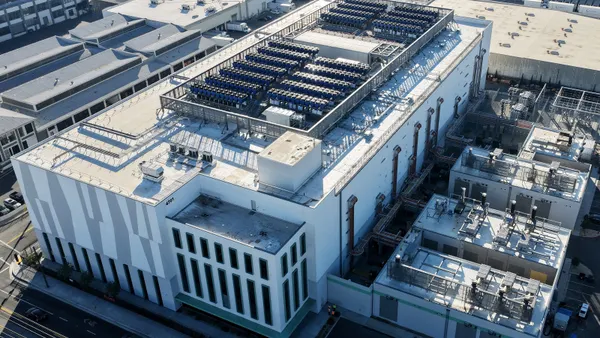Dive Brief:
- The Florida Public Services Commission on July 7 approved Demand-Side Management (DSM) plans and programs submitted by the state's five investor-owned utilities, rejecting commission staff recommendations to disapprove of the utilities' plans. Each utility's plan consists of a number of programs for commercial and industrial and residential ratepayers.
- "Overall, program costs will be slightly less for customers, so we found the utility programs to be in the public interest," PSC Chairman Gary Clark said in a board statement. Commission staff had recommended the board order the utilities to continue their existing programs.
- Walmart objected to Florida Power & Light (FPL) plans to reduce commercial and industrial load (CILC) and demand response (CDR) credits. The commission did not approve those plans, but agreed to address the credits in FPL's next rate base proceeding.
Dive Insight:
Regulators rejected staff recommendations and objections from Walmart and other commercial and industrial users, saying utilities had complied with requests for more robust, updated DSM programs.
The commission sets energy efficiency goals at least every five years under the Florida Energy Efficiency and Conservation Act (FEECA), and separately review DSM plans submitted by Florida's five investor-owned and two municipal electric utilities. The DSM approval process is intended to increase energy efficiency and development of demand-side renewable energy systems, while reducing the growth of weather-sensitive peak demand and overall growth of energy consumption and use of petroleum fuels, according to commission staff.
PSC previously approved plans submitted by the state's two municipal utilities, Jacksonville's municipal utility, JEA, and the Orlando Utilities Commission (OUC). The commission does not have rate-setting authority over municipal utilities.
Along with Walmart, the Florida Industrial Power Users Group (FIPUG) also urged the commission to consider separately any changes to FPL's CDR and CILC programs in the company's next rate case. FPL indicated it would file a rate case next year for rates that would go into effect January 1, 2022.
Commission staff noted that FPL proposed to reduce incentives for commercial and industrial users under its CDR and CILC programs by 30%, reducing the CDR's monthly bill credit from its current rate of $8.65 per kilowatt (kW) to $6.09 per kW.
PSC staff concluded that six out of FPL's 15 DSM proposals fail the Rate Impact Measure test of how programs might affect customers' bills. FPL's plan consists of 15 programs — six residential, seven commercial and industrial, one research and one qualifying facility program — to meet its conservation goals.
The company will make several changes to its Residential Load Management program, including requiring new program participants to include their air conditioning units and central electric heaters among the appliances subject to load management. FPL also plans to require that participants' homes be occupied at least nine months of the year and reducing appliance-specific incentives.
In addition to six FPL programs, ten of Gulf Power Company's 11 programs, two of Tampa Electric Company's 37 programs, and all five of Florida Public Utilities' programs also failed the Rate Impact Measure test, according to commission staff. All of Duke Energy Florida's programs passed.
The commission's Division of Engineering and Office of the General Counsel recommended that the commission reject the investor-owned utilities' submissions and instead continue the existing, previously approved programs. The existing programs met commission-approved criteria and goals, while many of the proposed programs did not, according to commission staff. The commission instead approved the utilities' plans and the component programs.
While the commission rejected the staff recommendations in the DSM approval proceedings, it accepted a staff recommendation to revise rules concerning the DSM approval process. "The DSM process — conservation goals set in one proceeding and plans to meet them set in another — is 40 years old, and it's time for an update," Clark said.
Commission staff recommended consolidating the goal-setting and DSM plan and program approval proceedings that the commission currently conducts separately. The processes are time-consuming and the results of approved plans may not be consistent with goals set by the commission.
Correction: A previous version of this article said the Florida Public Service Commission approved FPL’s plans to reduce commercial and industrial load and demand response credits. The commission decided to address the credits in FPL's next rate base proceeding.












